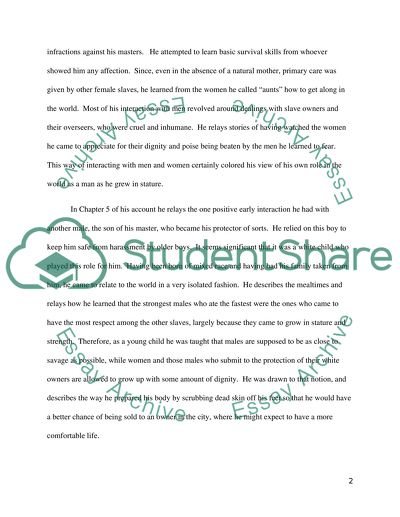Cite this document
(“Contrast the experience of slavery as represented by Douglass and Essay”, n.d.)
Retrieved from https://studentshare.org/environmental-studies/1420538-contrast-the-experience-of-slavery-as-represented
Retrieved from https://studentshare.org/environmental-studies/1420538-contrast-the-experience-of-slavery-as-represented
(Contrast the Experience of Slavery As Represented by Douglass and Essay)
https://studentshare.org/environmental-studies/1420538-contrast-the-experience-of-slavery-as-represented.
https://studentshare.org/environmental-studies/1420538-contrast-the-experience-of-slavery-as-represented.
“Contrast the Experience of Slavery As Represented by Douglass and Essay”, n.d. https://studentshare.org/environmental-studies/1420538-contrast-the-experience-of-slavery-as-represented.


